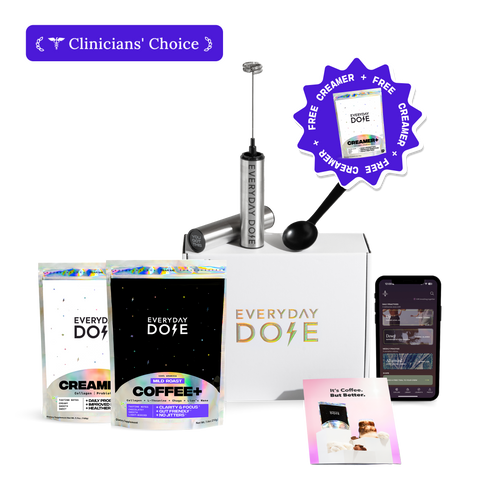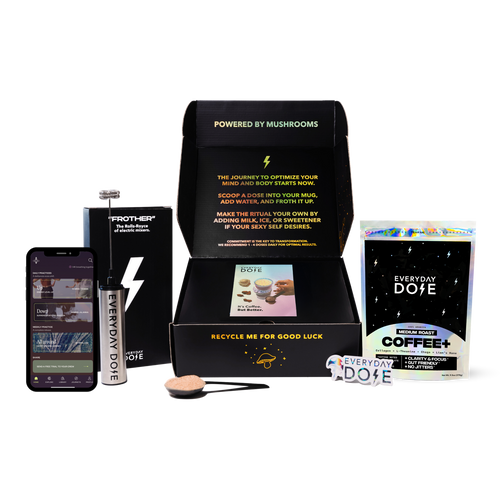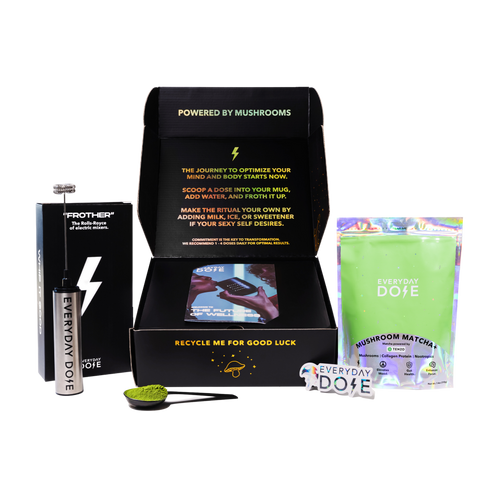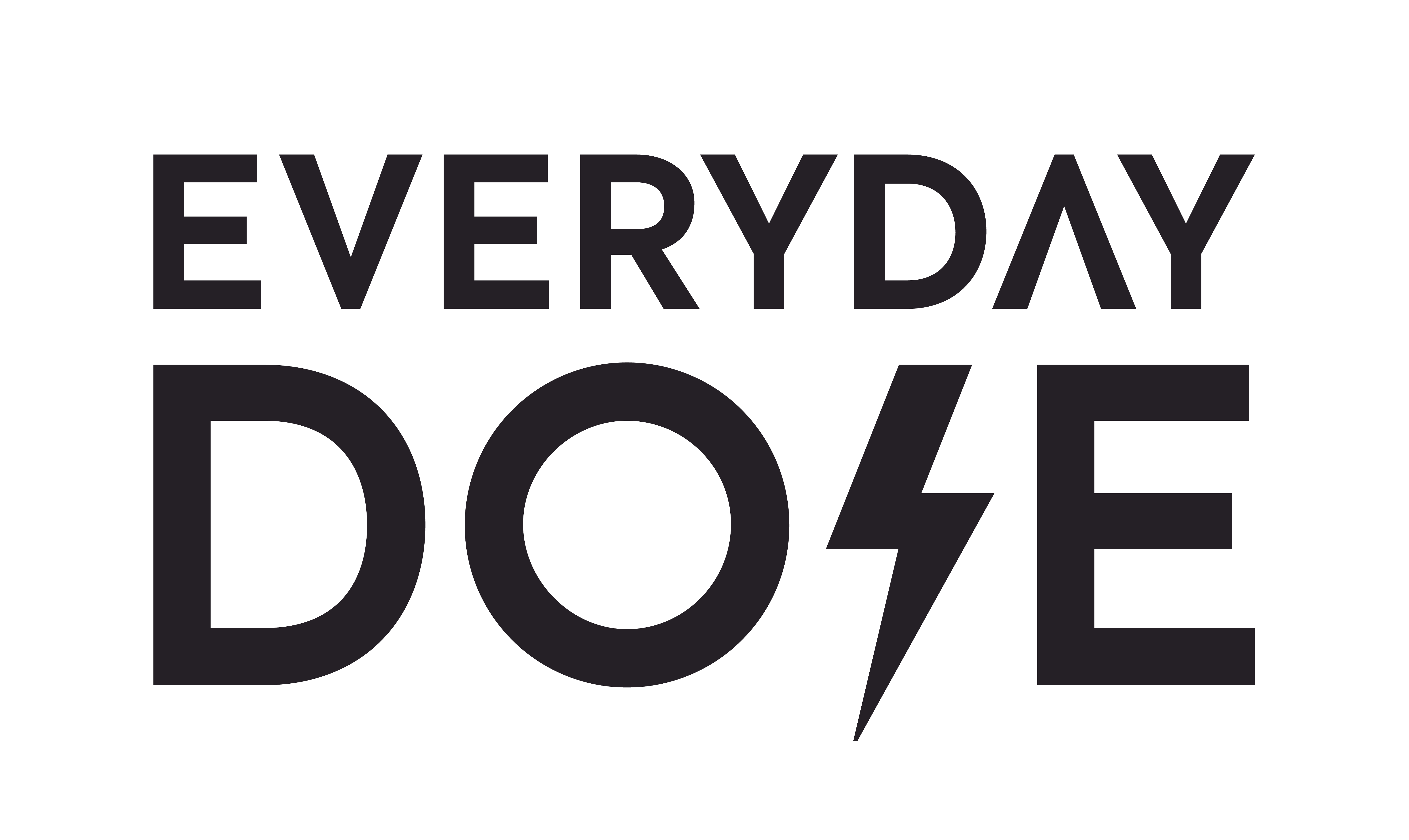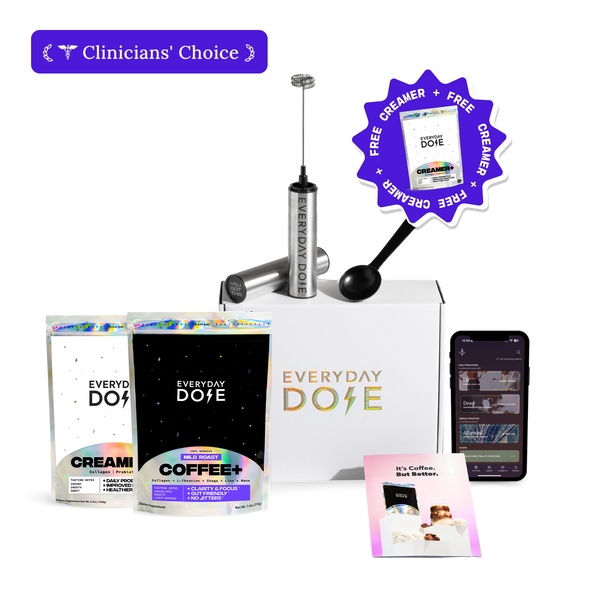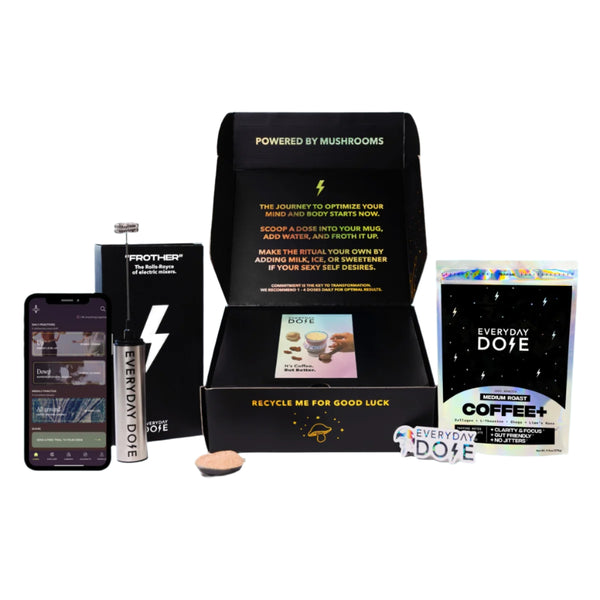L-Glutamine vs. L-Theanine: 4 Key Differences

L-glutamine and L-theanine may sound like siblings, but in the world of supplements, they’re more like distant cousins. One fuels your gut and immune system, while the other smooths out brain waves like lo-fi beats during a study session.
So, which one belongs in your daily routine? Let’s break down their biggest differences, what the science actually says, and whether there’s room for both in your supplement lineup.
4 Key Differences Between L-Glutamine and L-Theanine
Although their names are similar, L-glutamine and L-theanine aren’t exactly interchangeable. Read on for the four biggest differences between these two amino acids.
1. Chemical Structures and Metabolism
L-glutamine is one of the 20 standard amino acids that your body uses to build proteins. It’s considered “conditionally essential,” meaning your body can usually make enough of it — that is, unless you’re sick, injured, or under serious stress.
Structurally, it’s the amide of glutamic acid. It also plays a key role in nitrogen transport, acid-base balance, and fueling rapidly dividing cells.
L-theanine, on the other hand, is not one of the 20 standard amino acids. Found naturally in green tea (Camellia sinensis), it’s technically an analog of glutamine and glutamate. Structurally, it mimics these compounds and can cross the blood-brain barrier.
Once inside your brain, it plays a completely different role than glutamine. It supports balance among neurotransmitters rather than supporting cell metabolism. Unlike glutamine, it’s not involved in protein synthesis or nitrogen shuttling, but its influence on mood and cognition is well-documented.
2. Mechanism of Action
L-glutamine acts more like the logistics team of your body’s biochemical operations. It supplies energy to rapidly dividing cells, like those that line your gut or power your immune response. It also serves as a building block for nucleotides, amino sugars, and other essential molecules.
Glutamine is also a precursor to glutamate and GABA, the excitatory and inhibitory neurotransmitters in the brain, though it doesn’t have a direct calming effect like L-theanine does.
L-theanine works a little bit differently. Studies show it can encourage alpha brain wave activity, which is associated with calm alertness — think “relaxed but focused.” It can also support the production of key neurotransmitters, including GABA, dopamine, and serotonin, and it even limits excitatory glutamate activity in the brain.
This makes it popular among people looking for natural relief from feelings of stress, better sleep, or focused concentration, especially when it’s paired with caffeine. Interestingly, L-theanine can also help mellow out the side effects of caffeine, which is exactly why we’ve included it in our mushroom blends. Its ability to cross the blood-brain barrier is what gives it its fast-acting mental effects.
3. Health Benefits
L-glutamine’s benefits are largely tied to gut health and immune support. It’s the preferred fuel source for enterocytes (intestinal cells) and helps maintain the integrity of the gut lining, which is important for people recovering from gastrointestinal illnesses or major physical trauma.
In fact, it’s often used in medical nutrition for post-surgery patients, burn victims, and those undergoing cancer treatment. Some research also shows it may help with exercise recovery, though the evidence here is mixed.
L-theanine, by contrast, has been studied most for its effects on mental health and cognitive function. Randomized controlled trials have found that it can help ease feelings of anxiety without making you drowsy, encourage focus (especially when combined with caffeine), and even support a good night’s sleep.
In older adults, it’s been shown to support working memory and attention. Some studies suggest that it may ease feelings of stress by encouraging healthy levels of cortisol and blood pressure in stressful situations.
4. Dosing
Dosing for these two supplements is as different as their benefits. L-glutamine is often taken in gram-sized doses — typically anywhere from two to 10 grams per day, and up to 30 grams under medical supervision for specific clinical conditions. Because it’s a fuel source and metabolic support amino acid, the body tends to need it in larger amounts, especially during times of stress or illness.
L-theanine, meanwhile, is active in much smaller doses. Most studies use between 100 mg to 400 mg per day, depending on the intended benefit. For relaxation, 200 mg is a common dose, while 100 mg is often used in combination with caffeine to help you achieve laser-sharp focus. Theanine’s effects usually kick in within 40 to 60 minutes after you take it and can last several hours, making it useful for both situational stress and daily support.
L-Glutamine vs. L-Theanine: Which Should You Use?
If your body’s waving a white flag due to intense workouts, illness, or gut issues, L-glutamine might be just what you need. It’s great for supporting gut lining repair, immune cell energy, and post-surgical recovery.
But if your challenge is more mental, like staying focused through the afternoon slump, L-theanine might be a better option. It’s many people’s go-to for stress relief, sharp focus, and smoother caffeine enjoyment.
Can You Take L-Theanine and L-Glutamine Together?
Yes — you can take them together, and for some people, that might even be the ideal combo. While L-glutamine is busy patching up your gut and boosting immune function, L-theanine can help balance neurotransmitters and support a focused, relaxed mental state.
They don’t compete for absorption and they affect different systems in the body, which means there’s no risk in taking them together. In fact, one study suggests that L-theanine may even influence glutamine metabolism and immune signaling pathways.
If you’re stacking them, just make sure to tailor your dosage. For example, glutamine is generally better taken on an empty stomach or post-exercise, while theanine can be paired with caffeine in the morning or taken solo in the evening for relaxation.
If you want to take your theanine in the morning, check out our Mushroom Coffee+. This functional coffee combines L-theanine with coffee extract to deliver a smoother coffee experience, both in taste and caffeine side effects. Plus, it also contains lion’s mane mushroom for focus, chaga mushroom for immunity, and collagen protein for gut and skin health.
As always, talk to a healthcare provider if you’re managing a medical condition or taking other supplements.
The Bottom Line
L-glutamine and L-theanine may work differently, but both have science-backed benefits. Whether you're healing from physical stress or just need help keeping calm under pressure, one (or both) of these amino acids can help.
Just remember: glutamine fuels your cells, while theanine calms your mind. And hey, if you need a little extra help calming your thoughts, check out our mushroom blends!
Sources:
Glutamine: Metabolism and Immune Function, Supplementation and Clinical Translation | PMC
L-theanine, a natural constituent in tea, and its effect on mental state | PubMed
Glutamine supplementation for critically ill adults | PMC
Effects of l-theanine on attention and reaction time response | ScienceDirect
Start your day
The Right Way
